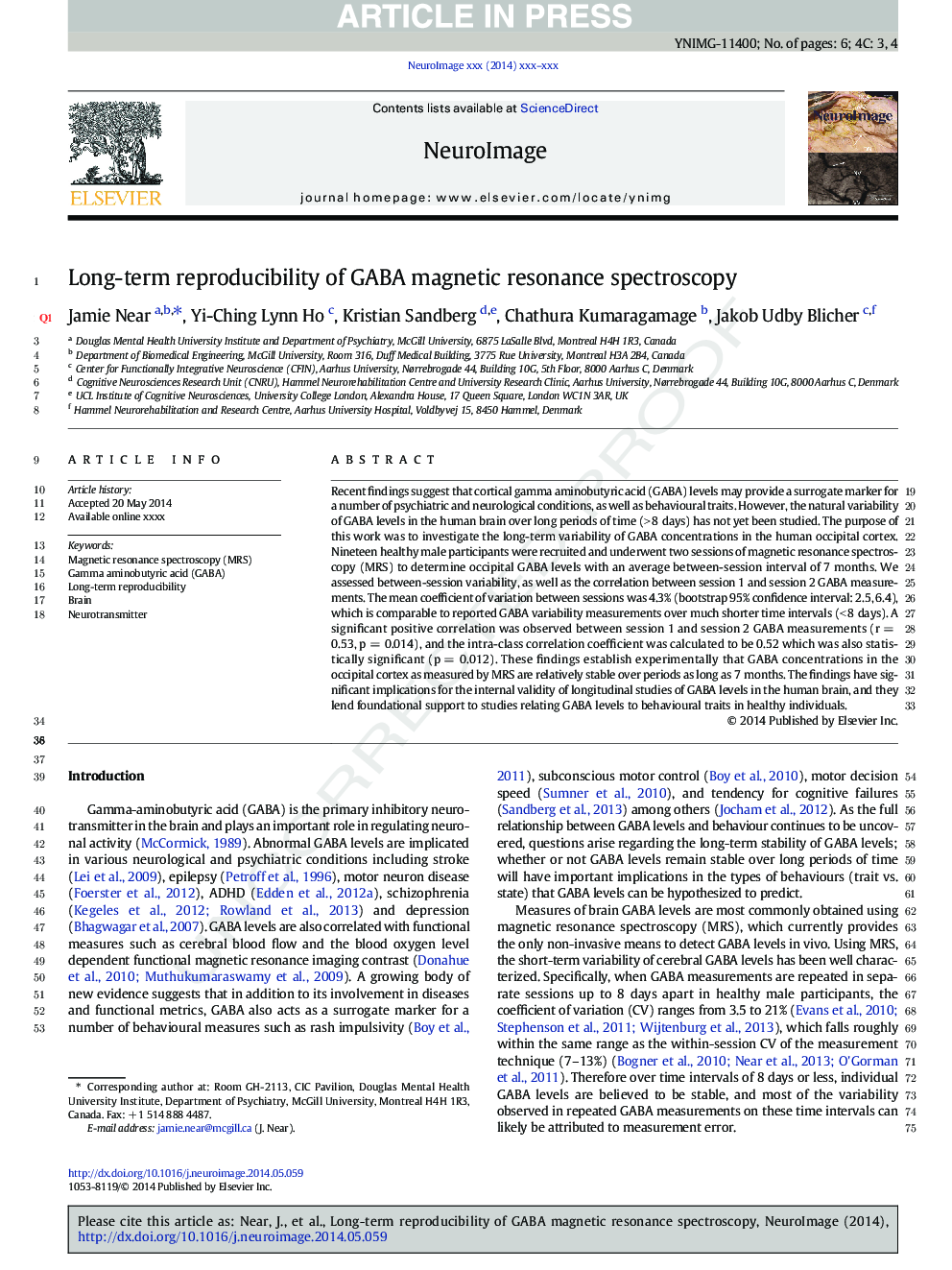| Article ID | Journal | Published Year | Pages | File Type |
|---|---|---|---|---|
| 6027065 | NeuroImage | 2014 | 6 Pages |
Abstract
Recent findings suggest that cortical gamma aminobutyric acid (GABA) levels may provide a surrogate marker for a number of psychiatric and neurological conditions, as well as behavioural traits. However, the natural variability of GABA levels in the human brain over long periods of time (> 8 days) has not yet been studied. The purpose of this work was to investigate the long-term variability of GABA concentrations in the human occipital cortex. Nineteen healthy male participants were recruited and underwent two sessions of magnetic resonance spectroscopy (MRS) to determine occipital GABA levels with an average between-session interval of 7 months. We assessed between-session variability, as well as the correlation between session 1 and session 2 GABA measurements. The mean coefficient of variation between sessions was 4.3% (bootstrap 95% confidence interval: 2.5, 6.4), which is comparable to reported GABA variability measurements over much shorter time intervals (< 8 days). A significant positive correlation was observed between session 1 and session 2 GABA measurements (r = 0.53, p = 0.014), and the intra-class correlation coefficient was calculated to be 0.52 which was also statistically significant (p = 0.012). These findings establish experimentally that GABA concentrations in the occipital cortex, as measured by MRS, are relatively stable over periods as long as 7 months. The findings have significant implications for the internal validity of longitudinal studies of GABA levels in the human brain, and they lend foundational support to studies relating GABA levels to behavioural traits in healthy individuals.
Related Topics
Life Sciences
Neuroscience
Cognitive Neuroscience
Authors
Jamie Near, Yi-Ching Lynn Ho, Kristian Sandberg, Chathura Kumaragamage, Jakob Udby Blicher,
